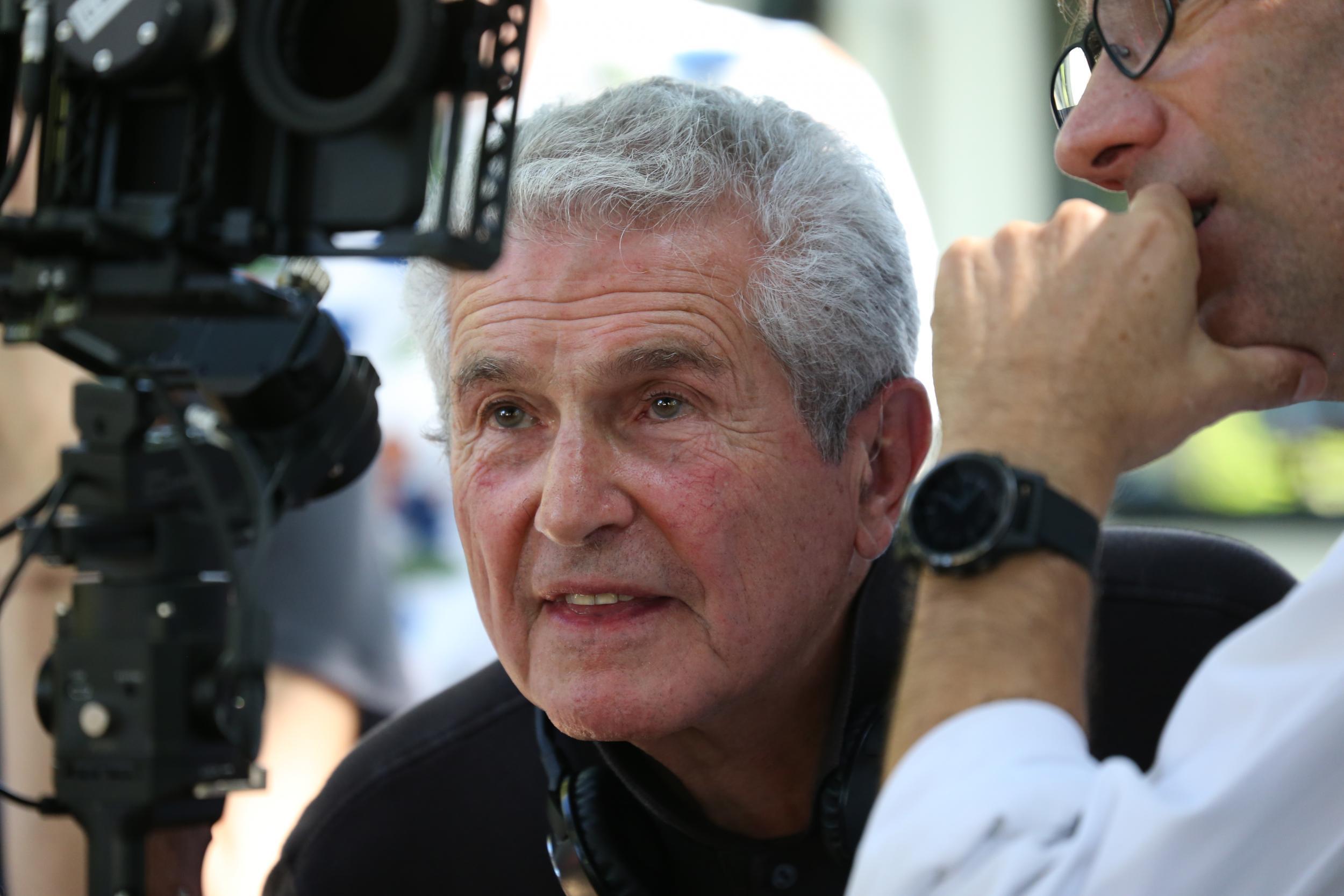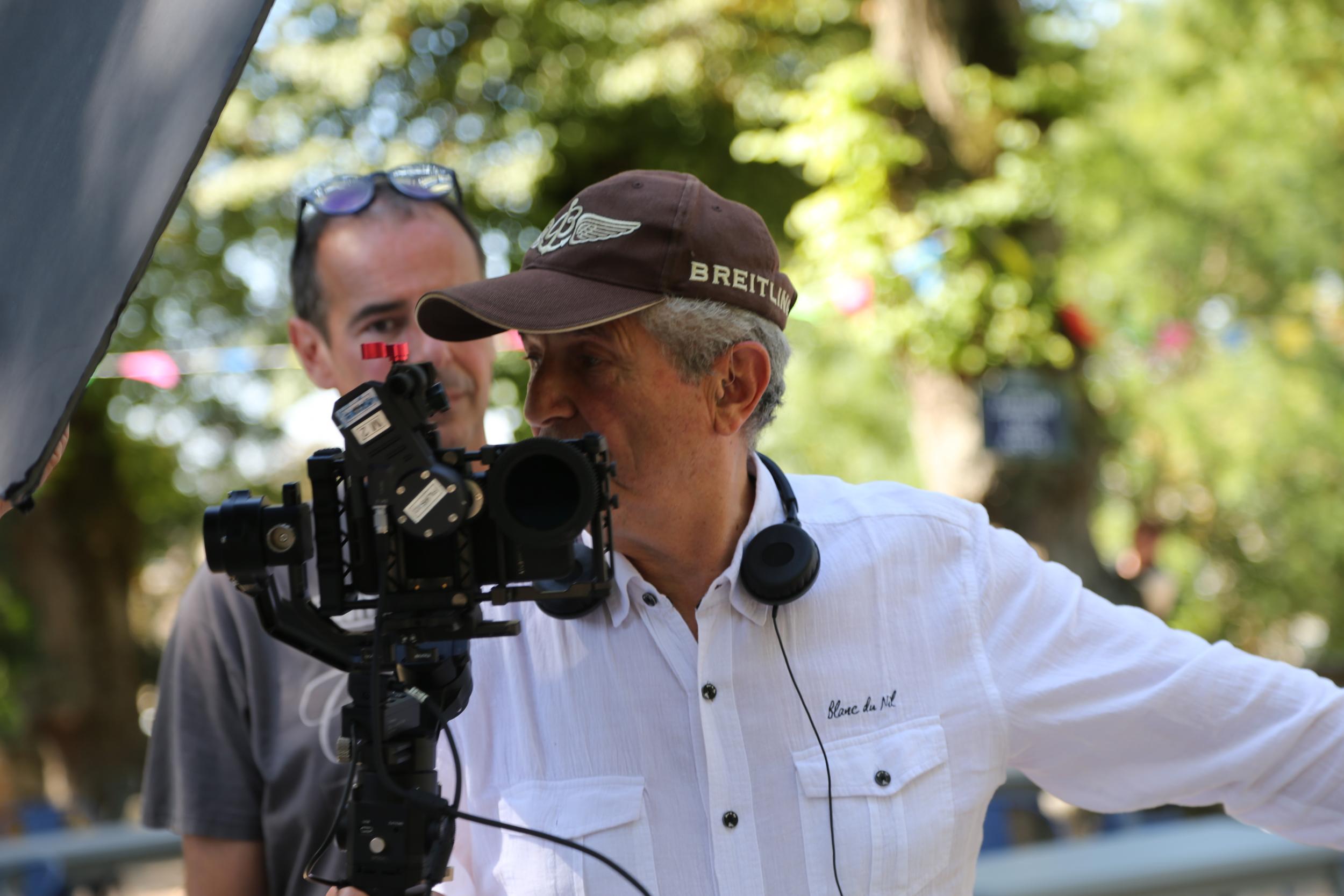Cannes Film Festival screens Claude Lelouch movie part shot on iPhone
Director says 'it's like a painter discovering a new colour' – but can a film partly shot using an iPhone hold its own at Cannes?

Your support helps us to tell the story
From reproductive rights to climate change to Big Tech, The Independent is on the ground when the story is developing. Whether it's investigating the financials of Elon Musk's pro-Trump PAC or producing our latest documentary, 'The A Word', which shines a light on the American women fighting for reproductive rights, we know how important it is to parse out the facts from the messaging.
At such a critical moment in US history, we need reporters on the ground. Your donation allows us to keep sending journalists to speak to both sides of the story.
The Independent is trusted by Americans across the entire political spectrum. And unlike many other quality news outlets, we choose not to lock Americans out of our reporting and analysis with paywalls. We believe quality journalism should be available to everyone, paid for by those who can afford it.
Your support makes all the difference.Movie directors often tell stories about filmmaking. When “the money is here”, that is when the producers visit the set, the director instructs the Director of Photography to make sure they’re using the biggest, most expensive camera so everyone can see the budget is being well spent.
So, what would the producers have made if they’d visited the set of Les Plus Belles Années d’une Vie (The Best Years of a Life) to find Oscar-winning director Claude Lelouch using a handheld set-up of a gimbal, motorised filter and an iPhone?
The film has just opened at the Cannes Film Festival and Lelouch has since shot another movie, this time entirely on an iPhone.
Before the premiere, Maxime Heraud, a director of photography who has worked with Lelouch extensively, explained that working with the iPhone was an “interesting adventure.”
Lelouch said to him, “Maxime, we are going to shoot a movie with my telephone. I think it will be fantastic.” Heraud says that there were significant challenges but that the freedom that it offered was irresistible, defining a new relationship between the actors and director.
Because there’s no adjustable iris on the iPhone, moving from darkish situations indoors to bright outdoors was tricky. But this was exactly the kind of shot a super-portable camera might deliver and an excitable, inspired director like Lelouch was demanding. So Heraud designed an adjustable filter and attached a motor and a remote control so he could darken the filter smoothly as needed.
The gimbal unit offered a smaller, lighter version of the Steadicam that Hollywood favours. Heraud also attached an external lens – again, something that’s affordable and available to everyone. Then came the choice of what app to use.
FiLMiC Pro, an app devised in Seattle by Neill Barham and Kevin Buonagurio, offers granular control over numerous aspects of filming, from sophisticated arc sliders to adjust focus and exposure independently, advanced manual controls for exposure, ISO, shutter speed and more. You can lock the white balance or the colour temperature, for instance, with clear visual indicators on screen to help you refine your shot. Its also available for anyone to download in the App Store for £14.99.
One of the essential cinema movements is the zoom. Of course, you need to ensure that the right element is in focus. In Hollywood there’s a person whose job it is to make this adjustment: the focus puller. In FiLMiC Pro, you can set this to happen automatically. As Kevin Buonagurio explained to me, “The focus pull is the most basic of Hollywood tricks when you’re trying to provide emphasis for a scene or something dramatic, when you want to shift the focus from the back of the room to where someone’s come through the door, for instance. You can set different focus points and it will glide from one to the other. You can set the speed of this, of course, if you want a fast focus pull or a slow, dramatic one.”

Neill Barham added: “It’s designed to be a filmmaker’s tool and basically a cinema camera in your pocket, but you’re going find that with some very basic knowledge within the app you’re going to be achieve some pretty high-quality results in just your first few minutes. It’s meant to be a discoverable app to help you take things to the next level.”
The company has also made a series of short, easy video tutorials to help.
Lelouch’s new film was met with standing ovations for Lelouch and his stars. The audience sang an impromptu rendition of the impossibly catchy theme tune from the original 1966 film: this new film is the third in the series. Lelouch said: "I love shooting with an iPhone as I can film anywhere, anytime! In 10 years’ time it will be the only way to film. It lets us come closer and capture better than anything ever before.”
Heraud admits that the iPhone is not the same as a professional-quality camera that costs €100,000, of course.
“But it’s really, really good. It can deliver a picture that can transmit an emotion. Really. What is nice is the weight. Because it’s so small and light you can put the camera everywhere, it can move fast, which is really great. It’s like a painter discovering a new colour. This is a new colour. If you have a shot where people are running, it’s perfect for that kind of shot, for example. You can do whatever you want even in situations which are normally hard, like a confined space.
“There was a revolution in the early sixties, the nouvelle vague, when the 35mm camera meant directors could shoot in many situations that weren’t possible before. You could be free with the camera because it was so light. When A Man and a Woman came out, American directors like Scorsese and Coppola said, ‘I want to shoot like this.’ Claude took the 35mm camera and he likes to get close to the actors so it’s not acting, it's life. You can’t know if it's life or not. Claude says his eye is his camera. Well, he says he has the same feeling with the iPhone. The control is light, you can see it all, there’s no eyepiece, you see it directly, you can see the reality here. He told me it was the camera he’d been dreaming of his entire life.”
Join our commenting forum
Join thought-provoking conversations, follow other Independent readers and see their replies
Comments